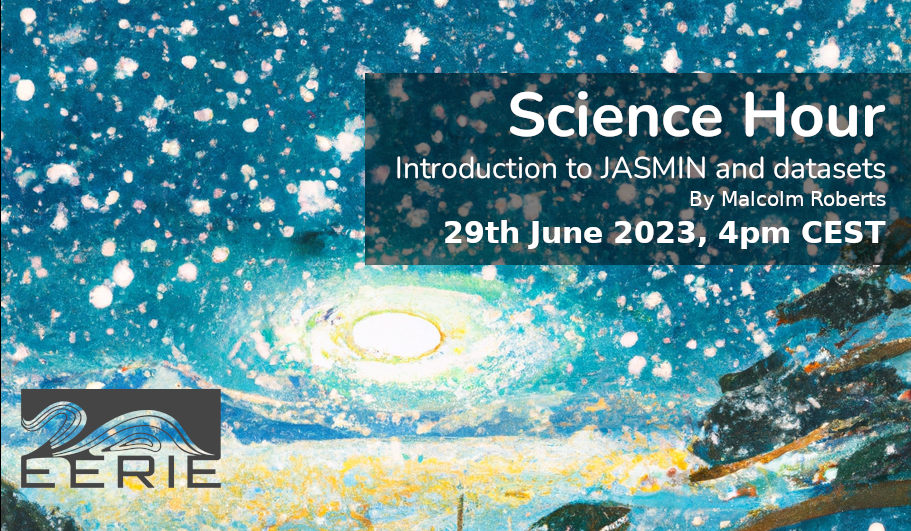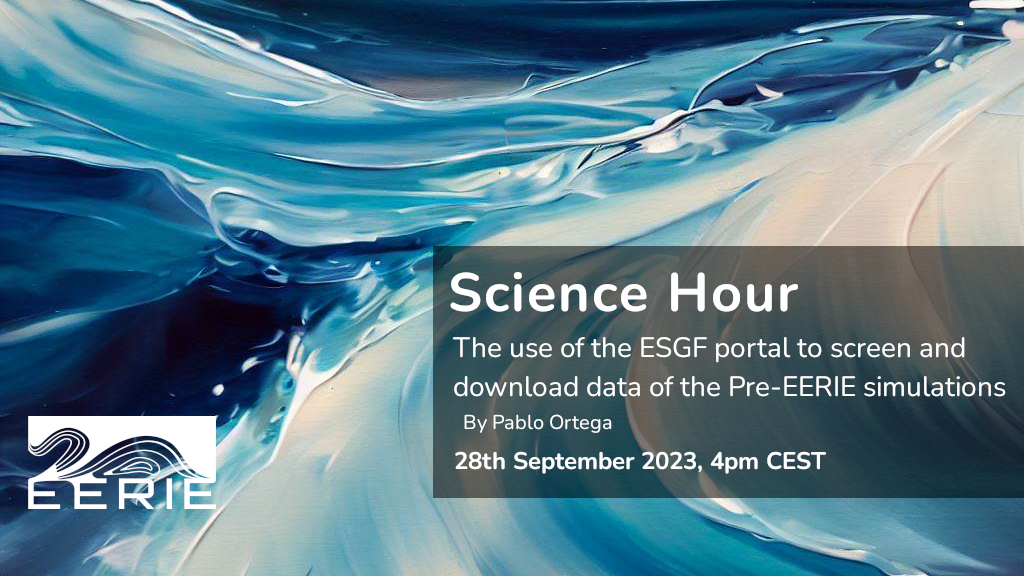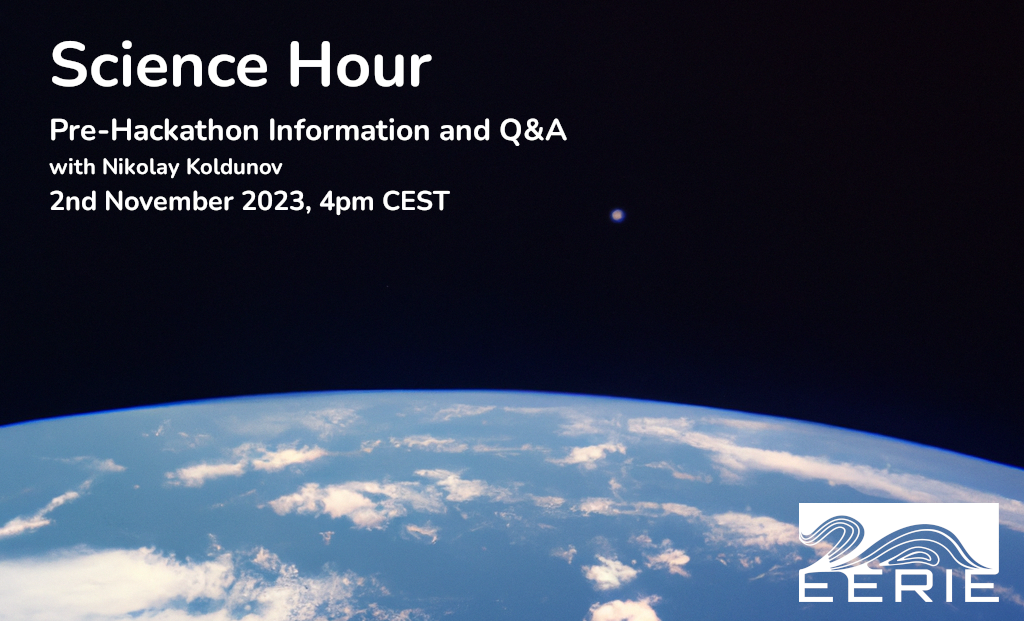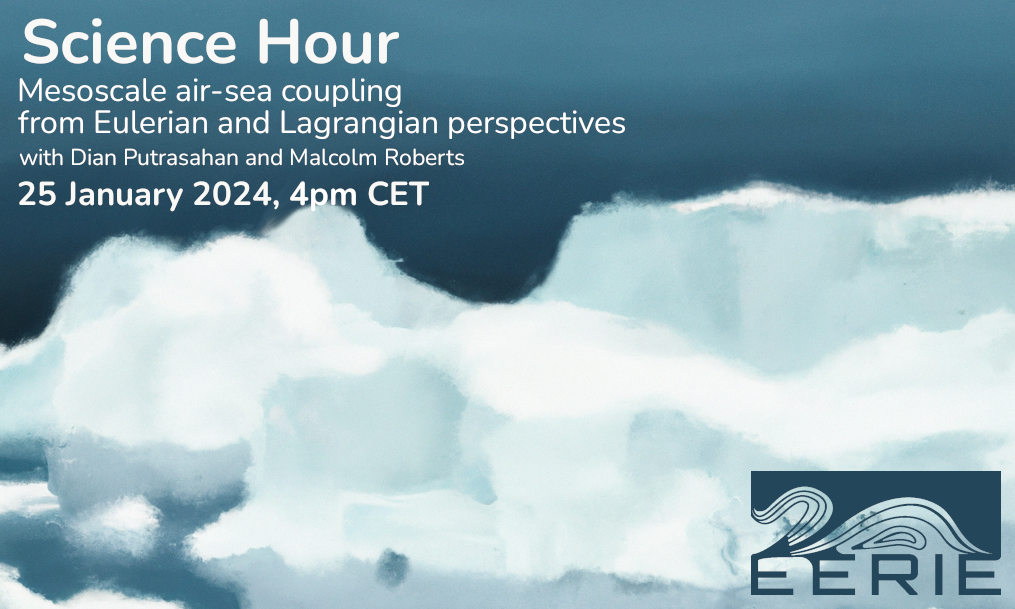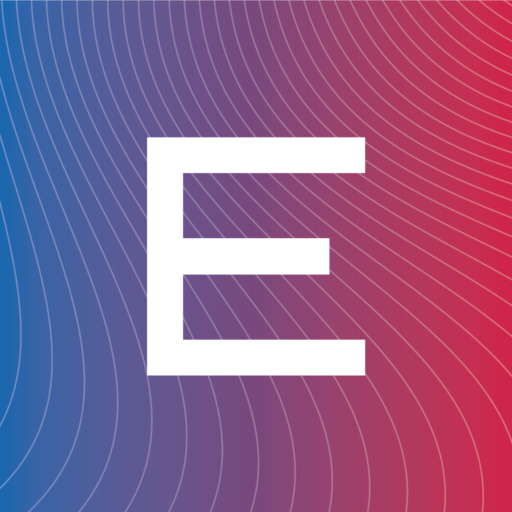Kick-Off Meeting
OnlineThe European Eddy-Rich Earth System Models (EERIE) project kicked-off on 23rd February 2023 with the aim to produce more reliable climate simulations and projections to 2100 by including realistic representations of the ocean mesoscale together with atmospheric weather and climate extremes. You may watch the meeting highlights here and read more about it …
EERIE Online Science Hour – “Introduction to JASMIN and datasets”
OnlineMet Office's and EERIE Project Coordination Team member Malcolm Roberts will host the first EERIE Science Hour focusing on JASMIN and datasets. The session can be joined by those interested via this link. Not to be missed!
EERIE Online Science Hour – “Introduction to Levante and easy.gems”
OnlineDKRZ's Fabian Wachsmann will host the second EERIE Science Hour focusing on Levante and easy.gems. The session can be joined via this link.
EERIE Online Science Hour – “Use of IFS-FESOM and ICON km-scale data”
OnlineAWI's Nikolay Koldunov will host the third EERIE Science Hour focusing on the use of IFS-FESOM and ICON km-scale data. The session can be joined via this link
Science Hour – The use of the ESGF portal to screen and download data of the Pre-EERIE simulations
OnlineBSC's Pablo Ortega hosts the fourth EERIE Science Hour, on the ESGF portal. The session can be joined by those interested via this link.
Science Hour – Pre-Hackathon Information and Q&A
OnlineNikolay Koldunov will host the fifth EERIE Science Hour, providing pre-EERIE Hackathon information and taking questions from the audience . The session can be joined by those interested via this link.
EERIE 2023 General Assembly
Alfred Wegener Institute (AWI) Am Handelshafen 12, Bremerhaven, GermanyEERIE participants convene in-person for the first time after an online kick-off meeting in February 2023 Page of the event: https://eerie-project.eu/general-assembly-hackathon-2023/
1st EERIE Hackathon
Alfred Wegener Institute (AWI) Am Handelshafen 12, Bremerhaven, GermanyThe AWI venue in Bremerhaven will host the first hackathon of the project, starting on the very same day the General Assembly closes. Page of the event: https://eerie-project.eu/general-assembly-hackathon-2023/
An EERIE Santa Cloud – news and updates on EERIE data access
EERIE Data Management aims to ho-ho-host EERIE data to all EERIE data users as quickly as possible. At DKRZ we are developing and deploying an eerie.cloud server to “cloudify” EERIE data, make it accessible via the web and put it under each Christmas tree as a gift. This sixth Science Hour session, with DKRZ's Fabian …
Read more "An EERIE Santa Cloud – news and updates on EERIE data access"
Science Hour #7
OnlineDian Putrasahan (MPI-M) and Malcolm Roberts (Met Office) will host the seventh Science Hour, on Mesoscale air-sea coupling from Eulerian and Lagrangian perspectives. The session can be joined by those interested via this link.
Joint EERIE-MEDLEY session
IMAG Building 700 Av. Centrale, Saint-Martin-d'Hères, Grenoble, FranceEERIE will co-host a session during the MEDLEY final meeting following the annual DRAKKAR meeting. Malcolm Roberts (Met Office and member of the EERIE Coordination Team) will deliver an online talk: "Eddy rich coupled ocean models in the climate system: EERIE and HighResMIP", followed by a discussion: "Which metrics to assess eddy rich ocean models?" …
Science Hour #8
OnlineBSC's Eneko Martín-Martínez will host will host the eighth Science Hour on the impact of model resolution on the representation of deep-water formation and its link with the AMOC. Recent supercomputing power improvements and a new generation of more efficient high-resolution climate models have enabled us to explore climate variability and change with coupled models …
